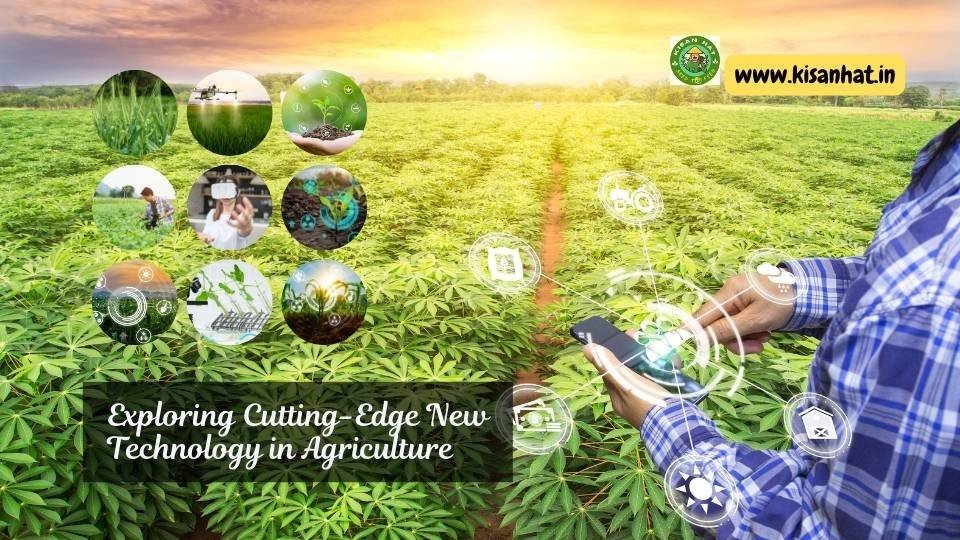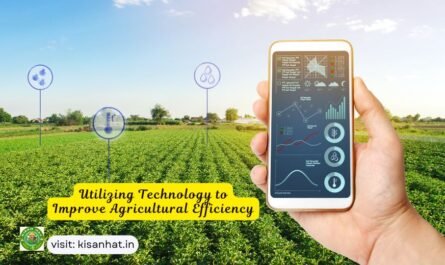Exploring Cutting-Edge New Technology in Agriculture
Agriculture, the backbone of human civilization, is undergoing a dramatic transformation. The integration of technology is revolutionizing traditional farming practices, promising to increase yields, enhance sustainability, and address global food security challenges.
From the advent of the tractor to the precision farming of today, technology has always played a pivotal role in agriculture.
However, recent advancements in areas like artificial intelligence, robotics, biotechnology, and data analytics are taking agricultural innovation to unprecedented heights. This new era, often termed “Agriculture 4.0” or “Digital Agriculture,” is reshaping the way farmers operate, manage resources, and produce food.
Key Areas of Technological Advancement:
Precision Agriculture: Utilizing GPS, sensors, and data analytics to optimize farming practices on a field-specific level. This technology allows for precise application of inputs like fertilizers, pesticides, and water, leading to increased efficiency and reduced environmental impact.
* Drones and Remote Sensing:
Unmanned aerial vehicles (UAVs) equipped with sensors are used for crop monitoring, field mapping, and even spraying pesticides. Remote sensing data provides valuable insights into crop health, soil conditions, and field variability.
* Artificial Intelligence and Machine Learning:
AI-powered systems analyze vast amounts of data to optimize farming decisions, predict crop yields, detect diseases, and automate tasks.
* Robotics and Automation:
Autonomous tractors, harvesting robots, and other automated machinery are increasing efficiency and reducing labor costs while improving precision and consistency.
*Biotechnology:
Genetic engineering and other biotechnological advancements are developing crop varieties with enhanced resistance to pests, diseases, and climate change, as well as improved nutritional value.
* Internet of Things (IoT):
Connected devices and sensors monitor various aspects of farm operations, from soil moisture to livestock health, providing real-time data for informed decision-making.
* The Impact of Technology on Agriculture :
The adoption of these technologies is leading to a more sustainable, efficient, and profitable agricultural sector. By optimizing resource utilization, reducing environmental impact, and increasing productivity, technology is helping to address global challenges such as food security, climate change, and water scarcity.
**In the following sections, we will delve deeper into specific technologies, explore real-world applications, and discuss the challenges and opportunities associated with this agricultural transformation.**
Would you like to focus on a specific technology or application within agriculture?
Key components of precision agriculture:
GPS and GIS: pinpoint the location of fields, equipment, and crops, enabling precise mapping and data collection.
Sensors:
Monitor soil moisture, temperature, pH, and other crucial parameters to optimize crop management.
Variable-rate technology: Apply inputs like fertilizers, pesticides, and seeds at varying rates based on specific field conditions.
Yield mapping:
Create detailed maps of crop yields to identify high- and low-performing areas for future optimization.
Data analytics and machine learning: Process vast amounts of data to generate actionable insights and predictive models.
Benefits of precision agriculture:
Increased efficiency: optimized use of resources like water, fertilizer, and pesticides.
Enhanced productivity: improved crop yields and quality.
Environmental sustainability: reduced environmental impact through targeted input applications.
Better decision-making: data-driven insights for informed farming practices.
Conclusion:
An Endnote: What’s The Future Of Agriculture Technology?
With the help of AI/ML and data science, farmers can assess their fields to identify the most suitable spots for planting seeds. They can employ computer vision to identify the ideal height, width, and spacing for the plants. This future of agriculture technology can then be applied to enhance their cultivation techniques.
Read more articles :


